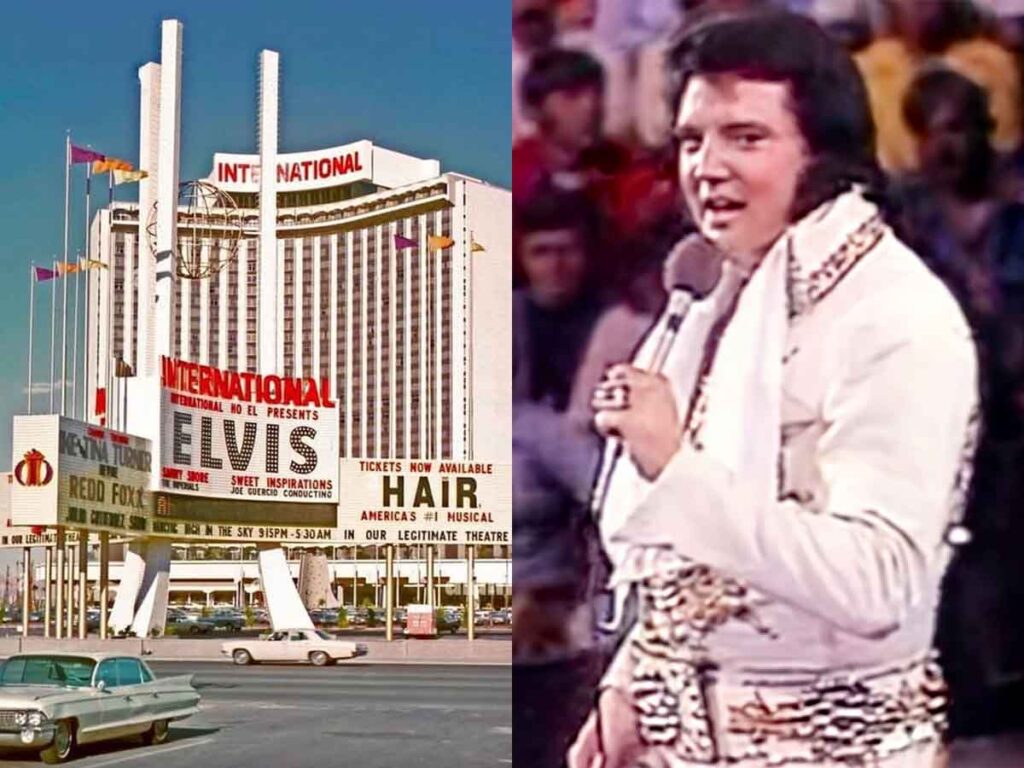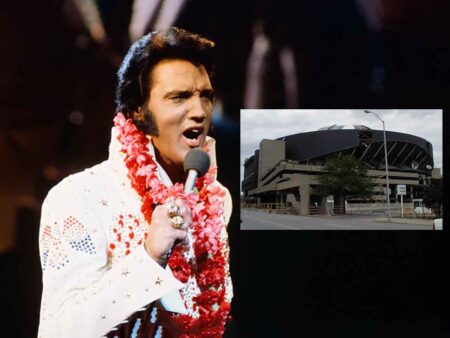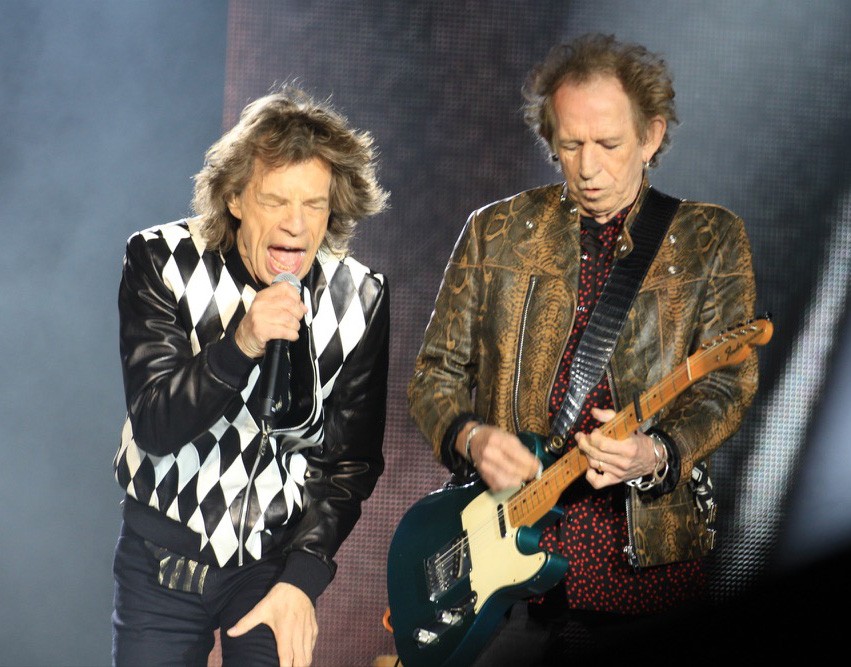Elvis Presley’s later years were a time of reinvention, excess, and struggle. As the 1970s unfolded, the King of Rock ‘n’ Roll transitioned from a cultural phenomenon to a Vegas showman, captivating audiences while privately grappling with mounting health issues.
His residency in Las Vegas defined his final act, with legendary performances that thrilled fans, even as his well-being deteriorated. By the time of his last shows in 1977, Elvis was a shadow of his former self, but his impact on music remained undeniable.
Contents
The Vegas Years: A Residency Fit for a King
Elvis Presley made his grand return to live performances in 1969, signing a lucrative contract with the International Hotel in Las Vegas. His comeback was electric—a mix of rock, gospel, and the theatrical flair that Vegas demanded. Initially, his residency was a resounding success, marking the beginning of a new phase in his career.
Many who witnessed these performances, including Elvis’s close friend Jerry Schilling, attested to the power of his stage presence. Similar sentiments can be found in multiple interviews with Schilling (Me and a Guy Named Elvis, 2006). His concerts featured elaborate jumpsuits, a full orchestra, and a loyal crowd eager to witness the King in action.
The early years in Vegas revitalized his career. Hits like “Suspicious Minds” and “The Wonder of You” became setlist staples, and his stage presence was as magnetic as ever. However, as the years progressed, the grueling schedule took a toll. Between 1969 and 1976, Elvis performed over 600 sold-out shows in Las Vegas, but behind the glitz and glamour, his personal struggles began to break him as a person.
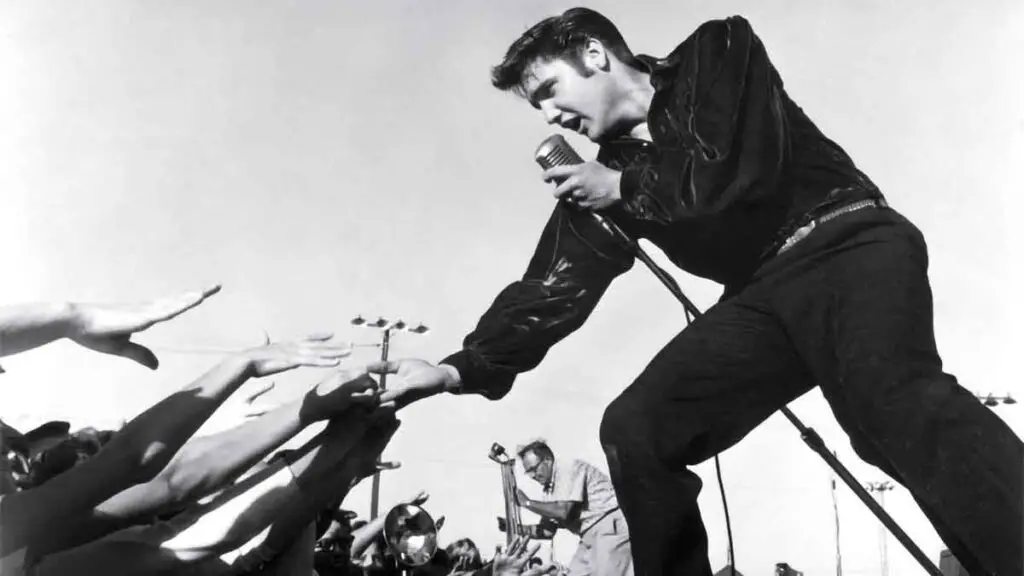
Declining Health: The Weight of Fame
By the mid-1970s, Elvis’s health was visibly declining. He gained significant weight, and reports of his prescription drug dependency began circulating. The pressures of performing night after night, coupled with a lifestyle of excess, exacerbated his health issues.
Dr. George Nichopoulos discussed Elvis’s health challenges in numerous interviews following the singer’s death. He detailed ailments such as hypertension, liver damage, and an enlarged colon in The King and Dr. Nick (2010). Additional analysis of Elvis’s medical history can be found in The Death of Elvis (Thompson & Cole, 1991).
Close friends and band members noticed the changes in Elvis’s performances. Bassist Jerry Scheff chronicled his experiences in Way Down: Playing Bass with Elvis, Dylan, the Doors & More (2012), offering firsthand accounts of Elvis’s fluctuating performance quality during his later years. Despite these struggles, he continued to perform, driven by his love for music and his connection to his fans.
Final Performances: The Last Bow
In 1977, Elvis embarked on what would be his final tour. His appearance had changed drastically, but his charisma remained. His last recorded concert in Indianapolis on June 26, 1977, showed moments of brilliance, particularly in his haunting performance of “Unchained Melody.”
Charlie Hodge, Elvis’s longtime friend and stage assistant, reflected on the performance in several biographies and documentaries. As one of Elvis’s closest confidants, Hodge witnessed firsthand the struggle and determination that characterized these last shows (Elvis and Me, Priscilla Presley, 1985).
Despite the difficulties, Elvis’s final shows were packed with devoted fans. Many were aware of his struggles, yet they remained in awe of his presence. Less than two months later, on August 16, 1977, the world lost the King of Rock ’n’ Roll. His death at Graceland was attributed to heart failure, exacerbated by years of prescription drug use.
Legacy Beyond the Curtain Call
Elvis Presley’s later years are often viewed through the lens of his health issues, but his legacy remains far greater than his struggles. His Vegas years introduced a new style of live performance that continues to influence artists today. His impact on music, fashion, and entertainment is undeniable, and his final years serve as a testament to his enduring dedication to his craft.
Priscilla Presley has spoken extensively about Elvis’s dedication to performing despite his health issues. Her reflections can be found in interviews, documentaries, and Elvis by the Presleys (2005), which combines book and film elements.
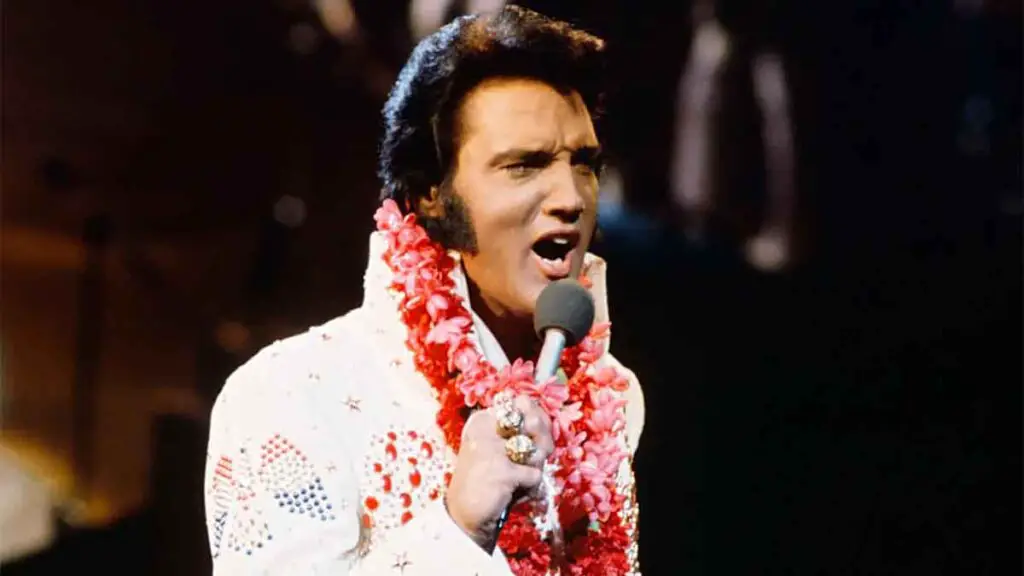
Modern Depictions: Elvis on the Big Screen
The continued fascination with Elvis’s life story is evidenced by Baz Luhrmann’s 2022 biopic “Elvis,” starring Austin Butler in the title role and Tom Hanks as Colonel Tom Parker. The film received acclaim for Butler’s portrayal of the King, particularly his recreation of Elvis’s electrifying stage presence and his turbulent later years.
Butler’s performance earned him a Golden Globe award and an Academy Award nomination, introducing Elvis’s story to a new generation. The film pays particular attention to the Las Vegas era and the complex relationship between Elvis and Colonel Parker, offering a stylized but emotionally resonant portrayal of this crucial period in the King’s career.
From his electrifying Vegas residency to his poignant final performances, Elvis Presley’s 1970s transformation was a testament to his resilience, talent, and undying connection with his fans. While his life ended too soon, his music and legacy continue to reign supreme, finding new expression through cultural touchstones like Luhrmann’s cinematic tribute.

